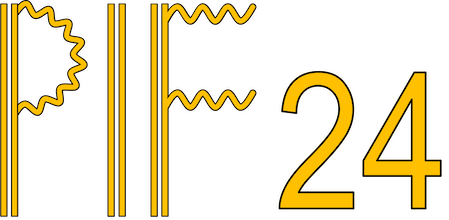Speaker
Description
Radiation reaction is the force experienced by an accelerated charge due to radiation emission. Quantum effects dominate charge dynamics, radiation production and radiation reaction for charges accelerated by strong fields. Such fields exist in astrophysical environments such as pulsar magnetospheres, may be accessed by high-power laser systems, and are expected at the interaction point of next generation particle colliders. Classical radiation reaction theories violate energy-momentum conservation and omit stochastic effects inherent in photon emission, thus demanding a quantum treatment. Two quantum radiation reaction models, the quantum-continuous and quantum-stochastic models, correct the former issue, while only the quantum-stochastic model incorporates stochasticity. Such models are of fundamental importance, providing insight into the effect of the electron self-force on its dynamics in electromagnetic fields. The difficulty of accessing conditions where quantum effects dominate inhibited previous efforts to observe such effects on charged particles with high significance.
We report the first highly significant (> 5σ) direct observation of strong-field radiation reaction on charged particles. Furthermore, we obtain strong evidence favouring the quantum radiation reaction models, which perform equivalently, over the classical model. Robust model comparison was facilitated by a novel Bayesian framework which inferred unknown collision parameters. This framework has widespread utility for experiments in which parameters governing lepton-laser collisions cannot be directly measured, including those utilising conventional accelerators.

